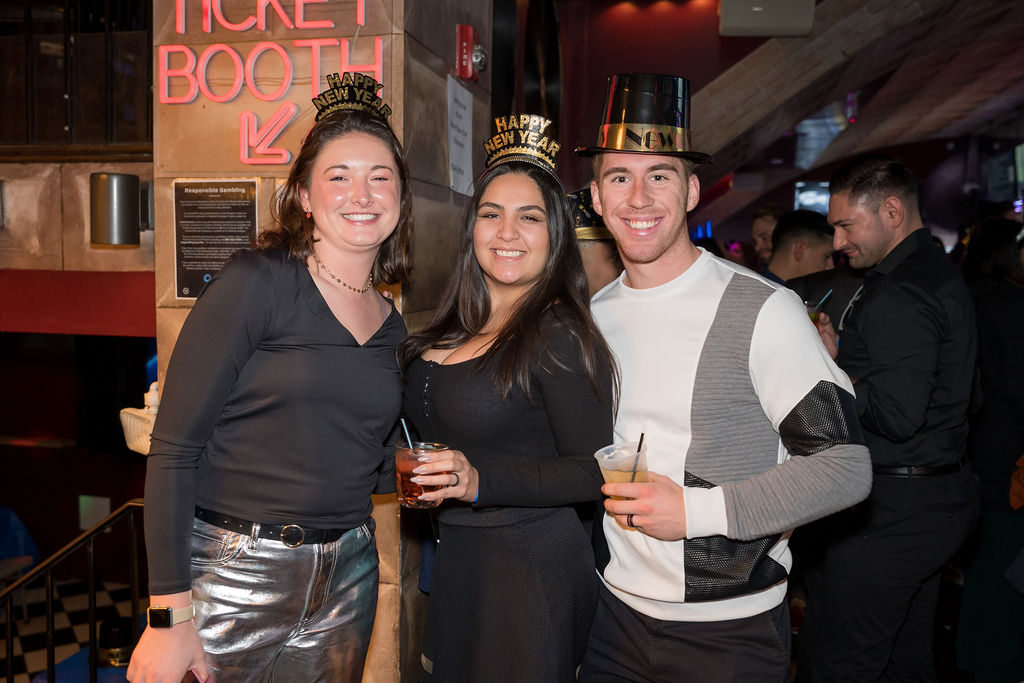Music
 Photo: Micaiah Carter
Photo: Micaiah Carter
Kimbra Learns via Rediscovery For ‘Primal Heart’
January 27, 2018 @ 12:00am
Kimbra has outgrown her claim to fame. I’m sure you’ve heard it – the song was hard to escape in 2011 and cleaned up at nearly all the major award shows, including the Grammys. I’m talking about the tune “Somebody That I Used to Know” by Gotye. Before that song, I had never heard of Gotye, and interestingly enough, I haven’t heard much about him since. Kimbra on the other hand…
“This is what it means to be human.”
This sentiment echoes throughout Kimbra’s latest album, Primal Heart. There’s only one slight hitch: apart from glimpses into the New Zealand native’s latest record, by way of singles, you won’t hear the complete work until April 20. In the meantime, fans of the burgeoning pop star must settle for seeing her live as she tours North America, including her January 30 stop at 9:30 Club, with a ferocious message and a thudding bass as her backdrop.
“Yeah, a lot of the work is not even related to the album itself,” Kimbra says. “I just have some exciting projects I want to come out around it. I get really creative on the road, and I’m working on the tour bus and backstage; it will be an exciting time for me.”
The words “primal” and “heart” carry tremendous weight in the English vocabulary. On their own, they are distinct signifiers of what humans are as a species, but generally they are opposed. The “primal” side is an innate, animalistic calling, a force of nature outside the conscious control, while “heart” is meant to establish the very mechanism keeping that unhinged nature in check – the feelings and raw emotions individuals cope with when facing all choices, everyday or life-altering.
“There was a bit of nervousness when I knew the title,” Kimbra says. “When I reflected on the record, it has something that relates to human nature, and ego and pride; and instinct and suffering; and even growth. These things that work for me, and not my career. This move was for me and my heart, and about finding myself.”
Before she stood on the Grammy stage collecting awards, she was a little girl listening to 70s pop records, staring out of her treehouse, penning her first lyrics. Though her parents were doctors, her father is an amazing photographer who toiled about in his darkroom for hours developing photos; she borrowed his method to cultivate her initial songs.
“That definitely rubbed off on me,” she says. “He has an artistic eye in seeing beneath the surface.”
In digging beneath her own surface for her 2018 release, Kimbra wasn’t journeying within the jungle of her thoughts and emotions in search of the undiscovered. Instead, the artist simply sought to find a forgotten sensation, even if she wasn’t intending to unearth it. This was a process of rediscovery rather than unearthing the sparkling “new.”
“A lot of our learning is rediscovery,” she counters. “I think a lot of our journey is unlearning what we’ve been taught. I think it’s also developing a relationship with pain. When I was younger, I was sort of escaping, but now I’m more comfortable in sitting and absorbing and learning from it.”
Apart from sitting and sifting through her own recollection, she ventured to Ethiopia twice during the creative process for the record. There, she was able to separate herself from a culture so dependent on personal wealth and materialism.
“I learned so much from that culture,” Kimbra says. “It opens your eyes and you see what’s truly important. I think that helps you share yourself with other people, and I’m really excited to step into this place [with Primal Heart].
One single from the record, “Top of the World,” rings of spoken-word poetry, a stark departure from her more melodic tendencies. She says the change of pace was simply provoked by encouragement.
“I did that beat with Skrillex, and he was shopping it around to rappers,” she explains. “I don’t know, but I sort of thought I could do that, and I spent some time with Donald Glover [Childish Gambino], and he told me I could, and he gave me that confidence. I think a lot of my music is super rhythmic, and I’m kind of moving toward a monotonous sound; it’s how I lean anyways. It showed I can move to different sounds, but still be authentic.”
Her sound has steadily evolved, but like she says, it’s been a subtle maturation. While the music is still drenched in 80s and 90s pop influences, the singles indicate this record will also take further inspiration from modern hip-hop and rap music. Multiple times during our conversation, Kimbra mentioned rappers such as Kendrick Lamar and Glover.
“I think there are elements from me that will always be there,” she says. “Even if I tried to make a different genre record, there are things I can’t really remove. I think I’ve always explored emotion and longing – the looking outward from a state of confusion. I think this album showcases more of that, but it’s not as collaborative.”
In the same single, she utters the phrase “Feel like a god,” and I immediately thought of another rap stalwart: Kanye West.
“I’m not comparing myself to Kanye, but I think the similarity lives in being bold enough to bring religious terminology into my music, to go there and just say that,” Kimbra says. “I think there’s something about ascension and growing out of your control, where you start to take on that space. It’s part of our human condition to feel like a god; we’re very much animals and we’re aware of our own decay, but we’re capable of transcendence because of these spiritual experiences.”
Ascension holds drastically divergent sentiments for people from different backgrounds, but I feel comfortable saying Kimbra has achieved some form of it. Like a young basketball player getting to talk trash over a game of one-on-one with Michael Jordan, Kimbra once stood shoulder to shoulder with the most notorious cookie connoisseur in the history of existence: the Cookie Monster. There, she allowed her primal instincts to take hold, devouring the biscuit without hesitation.
“I can’t believe you watched that,” Kimbra says in reference to her Sesame Street appearance from 2014. “I probably should get back to eating biscuits.”
Primal Heart is sure to unveil a dramatic exploration of Kimbra’s self. And though we are forced to patiently wait until April to hear her complete experience, I can say without hesitation I’m markedly more intrigued by the artist she’s becoming, rather than the one we “used to know.”
Catch Kimbra at 9:30 Club on January 30. Doors open at 7 p.m. Tickets are $30. For more information about Kimbra, visit
www.kimbramusic.com.
9:30 Club: 815 V St. NW, DC; 202-265-0930; www.930.com








